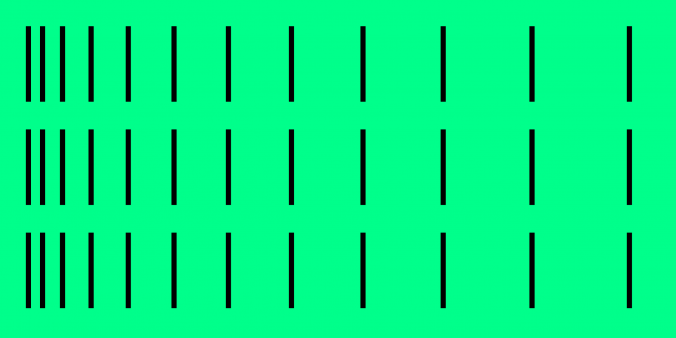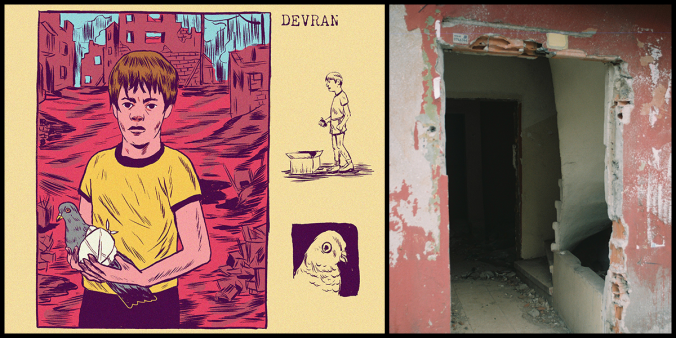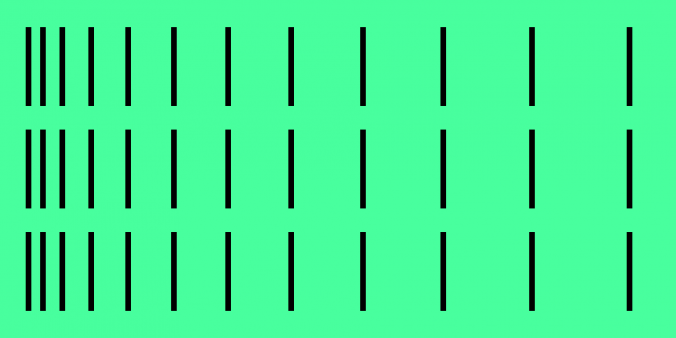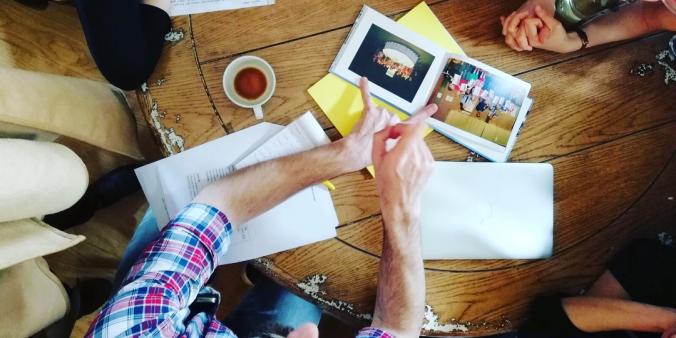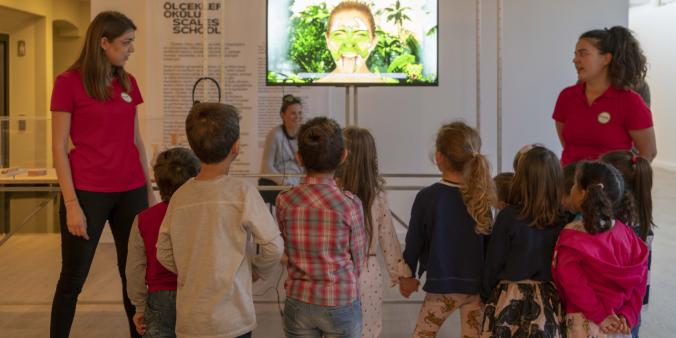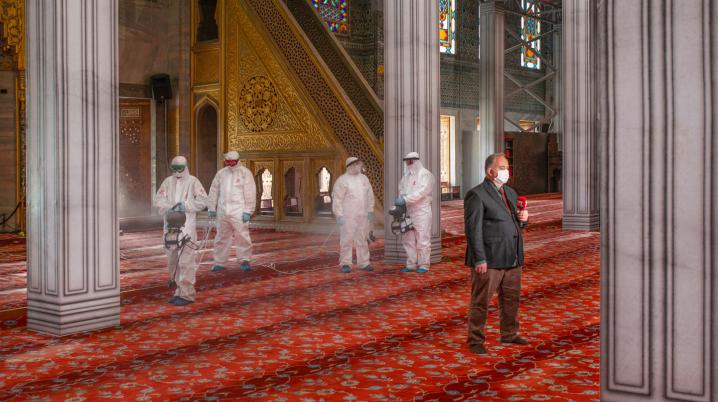
Opportunity for change - Recap of Infected Cities #8: Istanbul
How is the city of Istanbul dealing with the COVID-19 pandemic? And how are art and culture professionals responding to the crisis? On 25 June, urbanists, journalists as well as art professionals tuned in from Istanbul for a conversation from Pakhuis de Zwijger led by moderator Zoë Papaikonomou and Ekim Tan. (Video below)
Background
Istanbul is the engine of the Turkish economy and home to 16 million people, including over 500,000 Syrian refugees. City life is always bustling regardless of the season, but the arrival of spring in mid-March brings an extra boost of energy, motivating citizens to go out as the metropolis and its cultural agenda bloom with exciting activities. The first records of COVID-19 and the strict measures imposed by the government coincided with this busy time and with Ramadan, which is normally celebrated with congregational prayers, communal iftar meals and social gatherings. Between mid-March and June, as Istanbul became the epicentre of the corona pandemic in Turkey, authorities sought to combat the spread of the virus through a lockdown, weekend curfews, and by sealing off major cities. The crisis and the resulting suspension of public life has had a significant impact, increasing the gap between low and high income groups in the Turkish metropolis as well as weakening the independent art scene.
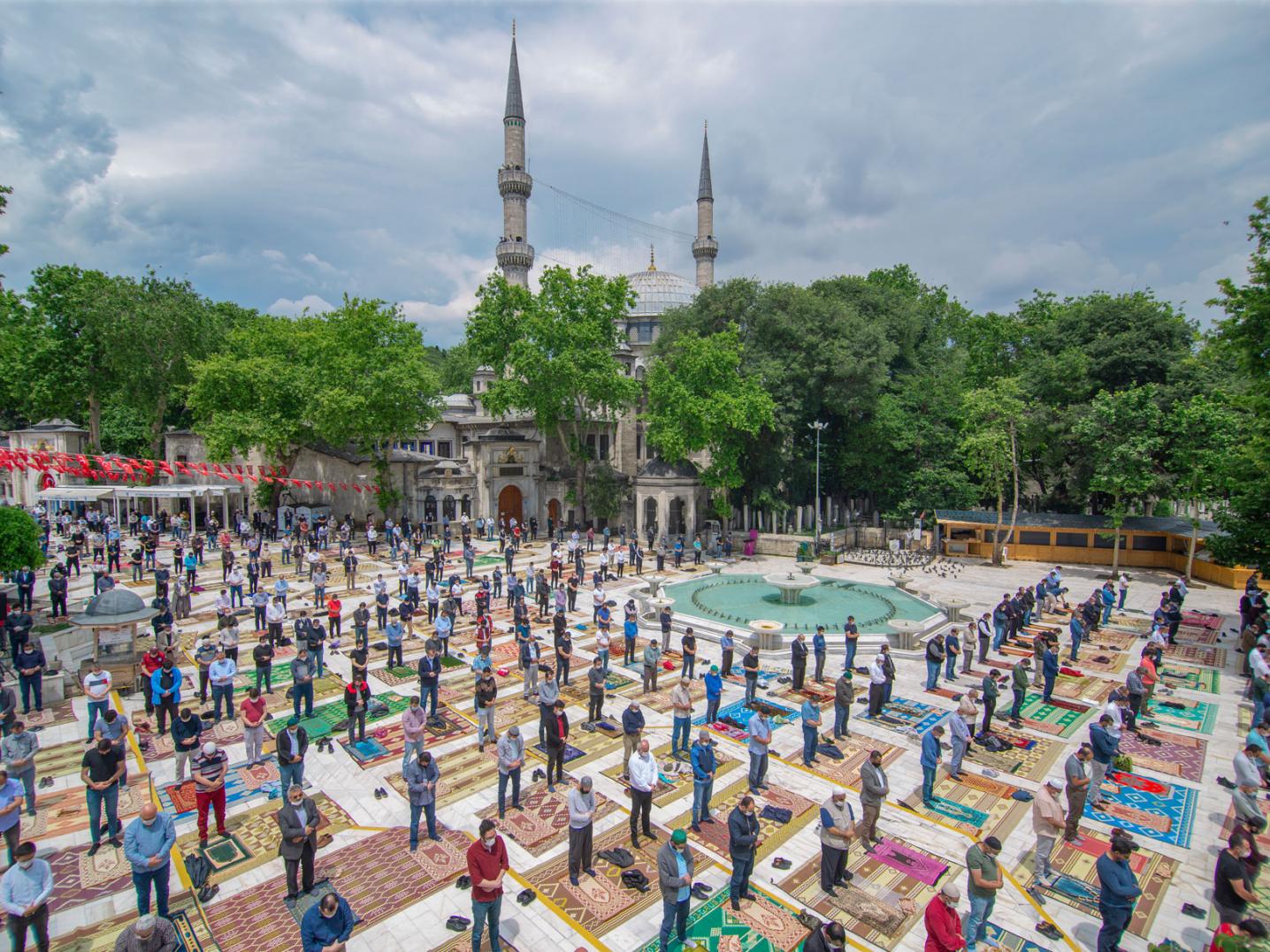
Toon Beemsterboer, journalist at NRC, explains: “The corona crisis hit the Turkish economy when it was already in a fragile state.” As a result, state support for families and businesses in the past months was neither extensive nor apolitical. Beemsterboer describes how the distribution of food aid quickly turned into a power struggle between the AKP-ruled government and the Istanbul mayor of the opposition party. The financial support or loans offered to companies to avoid employee lay-off were also not so much inclusive, especially of the many day labourers working without official contracts. Furthermore, it is currently unclear how the very large refugee population in Istanbul can access aid packages. As the crisis continues to unfold, we see the existing contrasts and inequalities intensify. Although some declared that COVID-19 was democratic, Beemsterboer emphasises: “The most vulnerable citizens are the ones hit hardest.”
Class remains the underlying factor: infection risks are higher in poorer neighbourhoods in Istanbul where multi-generational families share small apartments and work in conditions where social distancing is not possible. As urbanist Yaşar Adnan Adanalı points out: “The cities are actually fuelling COVID, climate and economic crises, instead of making our life more resilient. We are experiencing the consequences, so now this should be a wake-up call for everyone.” Adanalı highlights: “We have to demand less speculative development in our cities, less social conflicts. Humans, nature and climate should be at the centre of how we approach our cities.” He predicts that the challenges awaiting over the next months are to develop policies to support the most vulnerable groups in Istanbul with respect to employment, access to and quality of housing, and to expand pedestrian and cycling systems as alternatives to public transport, and to create more green spaces, among others.
“The most important agenda in Istanbul’s urban planning is that soft spaces such as parks, places for children and public spaces become megaprojects, so that everyone feels represented and involved in the city," adds architect and urbanist Ekim Tan. “I truly believe that we should try to rise above politics when looking at city solutions. Talking to each other about how we can improve cities is key to achieving a true impact on urban planning.”

Difficulties and resilience within the arts
Visual artist Sinem Dişli emphasises: “The pressure on artists is particularly high in these times because most support is offered through international calls for specific art projects.” However, it is particularly strenuous for artists to deliver an immediate artistic response to the crisis as their primary concerns nowadays are finding the means to survive. “There's a lot of pressure on artists, although there's a lot of support. I try to apply for support but they all ask you about the kind of work you are producing. Basically, you need to have a product to get support as an artist. I think this is a big issue,” says Dişli. Still, she found inspiration to create work based on the emotional and psychological strains triggered by the pandemic: feelings of isolation, tension between the longing for physical contact and the risks of infection, and the eagerness to make art. The group exhibition Crystal Clear will open at Pera Museum in September. In her new work, inspired by prehistoric Mesopotamian art, Dişli created The Believers: clay figurines representing her friends whom she is solely able to meet digitally. “Through this process I can regenerate a sense of attachment and proximity with my artist friends.”
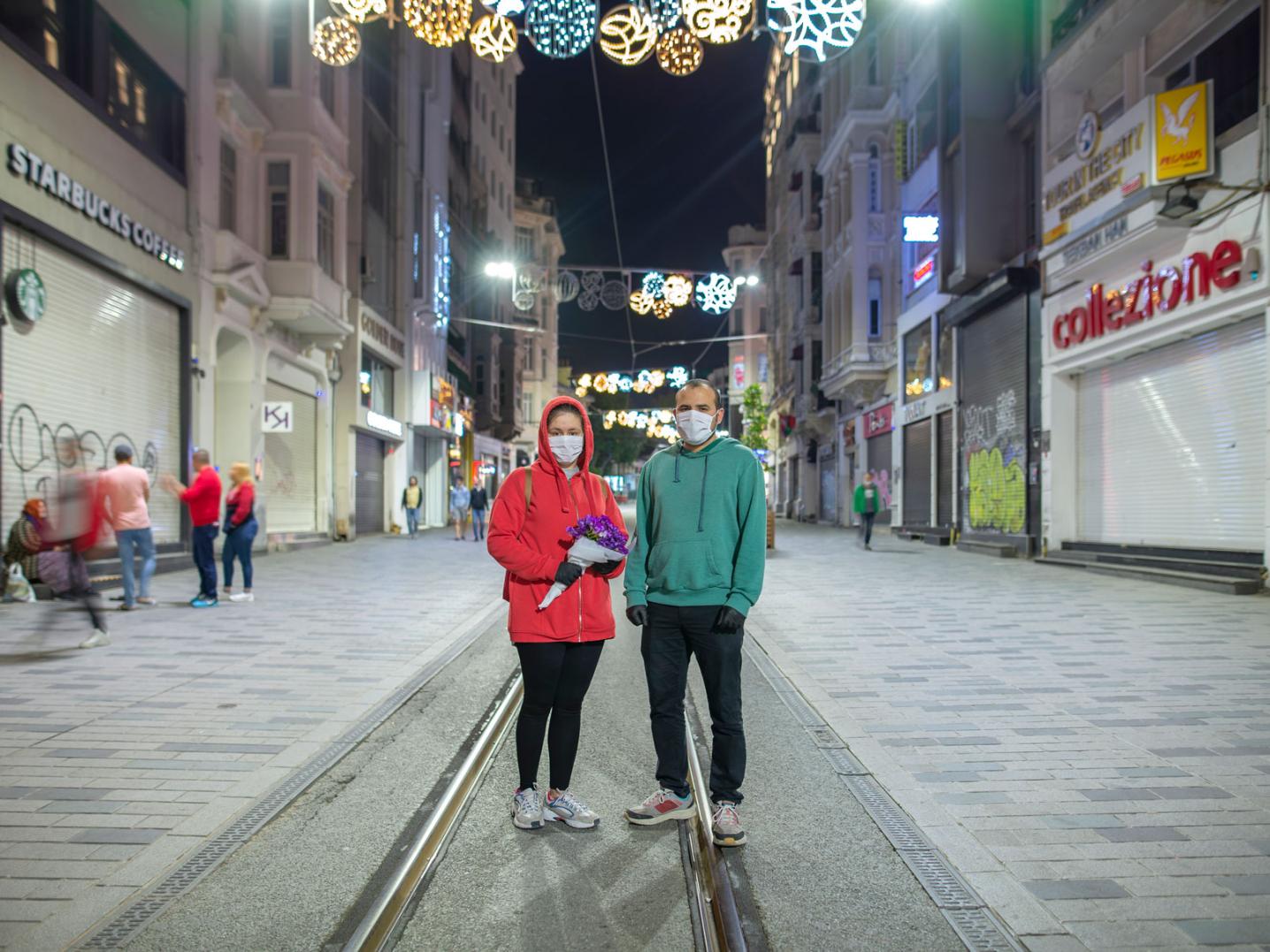
Bekir Dindar, a photographer born and raised in Istanbul, has been documenting the city for a long time. Arzu Arısoy, Dindar’s friend who is assisting him with the English communication during the meeting: “This time he was shocked and excited about it because with the curfew, nobody was out. Istanbul is a huge city, it has 16 million inhabitants and it's weird to see the city empty.” Dindar made numerous touching snapshots of Istanbulites in empty streets, enjoying the few hours allowed outdoors and how the busiest neighbourhoods were transformed into ghost towns. In addition, he created an homage to Koudelka’s 1968 picture of Prague during the Russian invasion by producing a series illustrating the deserted squares of Istanbul. For him, Istanbul’s lockdown evoked similar sensations to the military invasion of the Cold War.
DJ and performer Kübra Uzun is “stuck at home”, she says. With no governmental support or work insurance, Istanbul’s night scene already offered very limited stability for queer night workers. However, COVID-19 has made the situation extra difficult as many of them, including Kübra, lost their work due to the closure of bars and clubs. Despite the hardships, she continues to create art and connect with her community. She made the song ALAN2020 in collaboration with Çağlar (Mx Sür) for the occasion of Pride Week Istanbul, which took place digitally between 22 and 28 June 2020. Uzun: “Inspired by the sound of 1990s Ballroom, this anthem song echoes the title of Istanbul Pride 2020, ‘Where am I’, by asking where the LGBTQ+ community is and demanding equal rights.” She has furthermore been developing new and exciting online projects such as Through the Window, combining queer activism and art, radio programmes on classical Western music, and various other solidarity initiatives such as a fundraising campaign for queer night workers in Turkey.
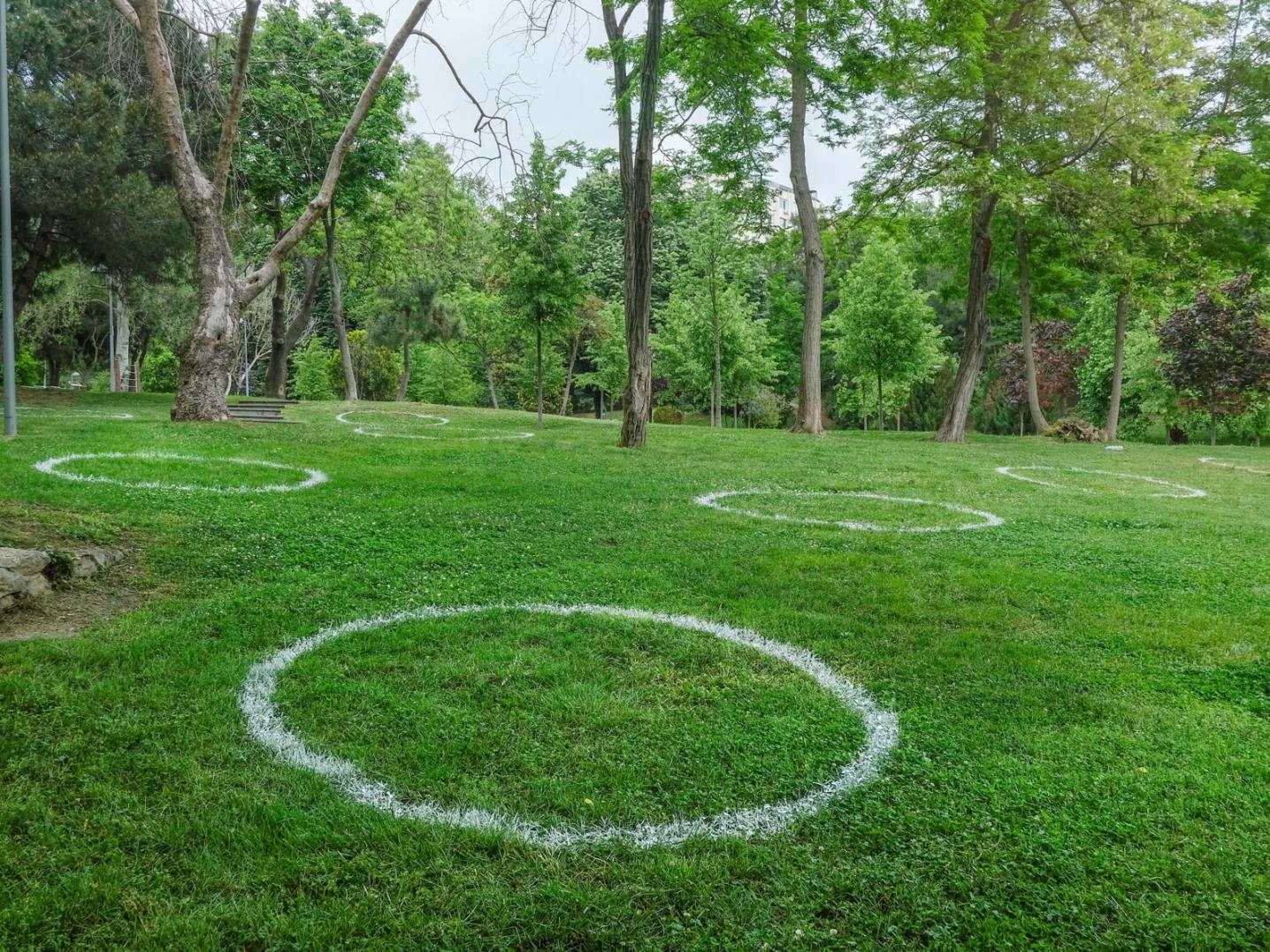
Pınar Akkurt is a designer and artist working with easy-to-find materials and objects to create installations and sculptures that focus attention on upcycling and waste. Due to the pandemic, Akkurt’s commercial assignments — giant interactive installations and shop windows made entirely of recycled objects — came to a stop. She points out that “there is no aid for individual artists and designers”. The lack of governmental support makes it particularly challenging for independent creative professionals to survive. “I spent this lock-down time focusing on my upcycling library,” she says. She believes COVID-19 and the climate crisis are interconnected and it is therefore urgent to change our habits and consumption patterns. “I made DIY masks from a pillowcase, bag, T-shirt or bandana, because in the beginning of the pandemic the masks were sold out in Turkey or really expensive if you could find one. I was very mad about it because the right and access to health is a fundamental human right. The DIY objects I create in my library are quite simple to assemble and produce so that even unskilled people can make them.”
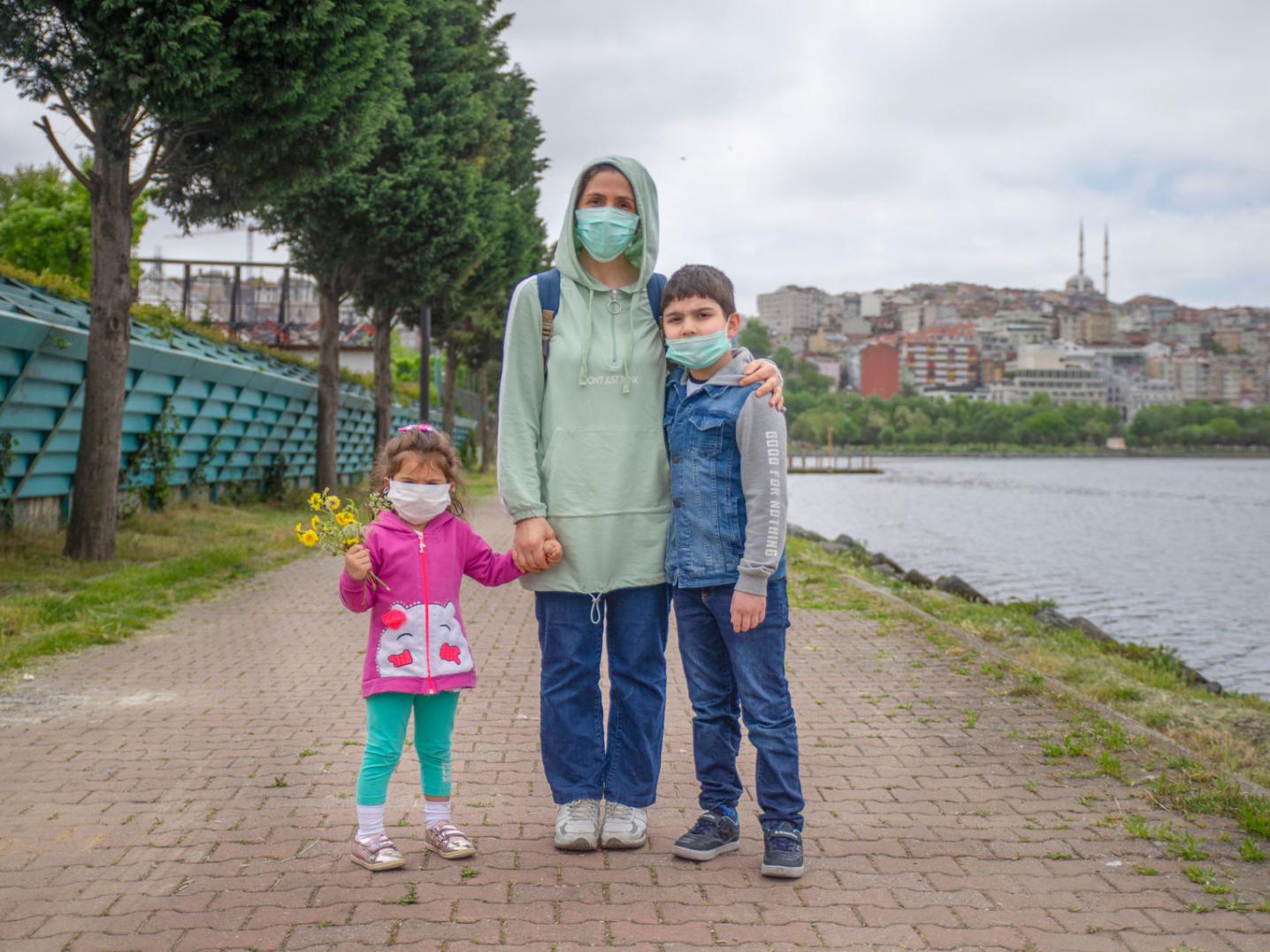
Infected Cities Istanbul wishes to amplify the voices of artists and makers in the city, as well as of more established cultural organisations. Hakan Silahsızoğlu and Bige Örer contributed with their interesting insights on how the pandemic has reshaped festivals. Hakan Silahsızoğlu is the director of Turkey’s one and only babies and children festival, ATTA Festival, which is scheduled to take place around Children’s Rights Day on November 20, 2020. Given the uncertainties related to cultural gatherings, Silahsızoğlu explains: “We choose shows that can be flexible, so not all of them are completely for conventional stages. We can go to museums; we can go to other outdoor and indoor spaces. And, we choose shows that don’t require a full set and full lighting, so in that way we try to achieve a balance in our programme.” Considering that children and youth under the age of 20 were in complete lockdown in Turkey for three months, ATTA festival’s wide range of online activities for children during the pandemic, such as yoga classes, storytelling workshops like I read and I dream, and theatre performances such as Wanted: Rabbit (Gezocht: Konijn) were much appreciated. Despite the greater outreach of digital programming, Silahsızoğlu highlights “that we can do very limited work in comparison to real performances.” Support mechanisms for theatre makers are minimal, but there are strong solidarity campaigns set up by independent theatre-makers to support stage technicians, directors, writers and actors who are not able to work during the pandemic.
The Uniting Power of Arts and Needs of the Cultural Field During the Pandemic
The conversation with Bige Örer, director of the Istanbul Biennial and Contemporary Arts Projects of Istanbul Foundation for Culture and Arts (İKSV), was interrupted during the livecast due to time constraints. This is why we end this article with a short interview with Bige Örer.
As a response to the impact of the pandemic on the arts, İKSV has created a report. What types of support models for arts and culture are the most effective in the current context?
“The pandemic made visible all the economic precarities and inequalities in the cultural and artistic field in Turkey. It seemed important to us to rethink different formats of collaboration and solidarity in our field. In line with this, the Cultural Policy Studies department of İKSV published The Uniting Power of Arts and Needs of the Cultural Field During the Pandemic in April. It examines the various international support mechanisms set up for the creative industries and proposes a set of measures for the Turkish context, including a call to public authorities, the private sector and individual donors to provide funding for arts and culture that fulfill a pivotal role in community building and solidarity in the cultural field. Subsequently, İKSV launched various important initiatives for professionals in different art disciplines: the Musician Support Fund, COVID-19 Film and Television Relief Fund (with Netflix and Cinema & Broadcasting Union of Turkey), "Co-Production" for theatre productions (with BKM, DasDas, ENKA Sanat, and Zorlu PSM), and others.”
Speaking of partnerships, could you tell us about the forms of solidarity in art and culture found in Turkey?
“There are different forms of solidarity that emerged from the current context in Istanbul. Omuz started as a sharing network among those working and producing in the visual arts, bringing together the parties seeking financial support with parties willing to offer support. It was initiated by a group of workers from Istanbul, who believe in the urgency of unreciprocated resource sharing and cooperation. İzoleproject was formed to create a meeting point for artists coming from different disciplines and who have already been involved in collective working. As an online collective, storytelling has been important to inspire each other. Saha, an association supporting contemporary art from Turkey since 2011, recently issued an open call to support artists and initiatives affected by COVID-19.”
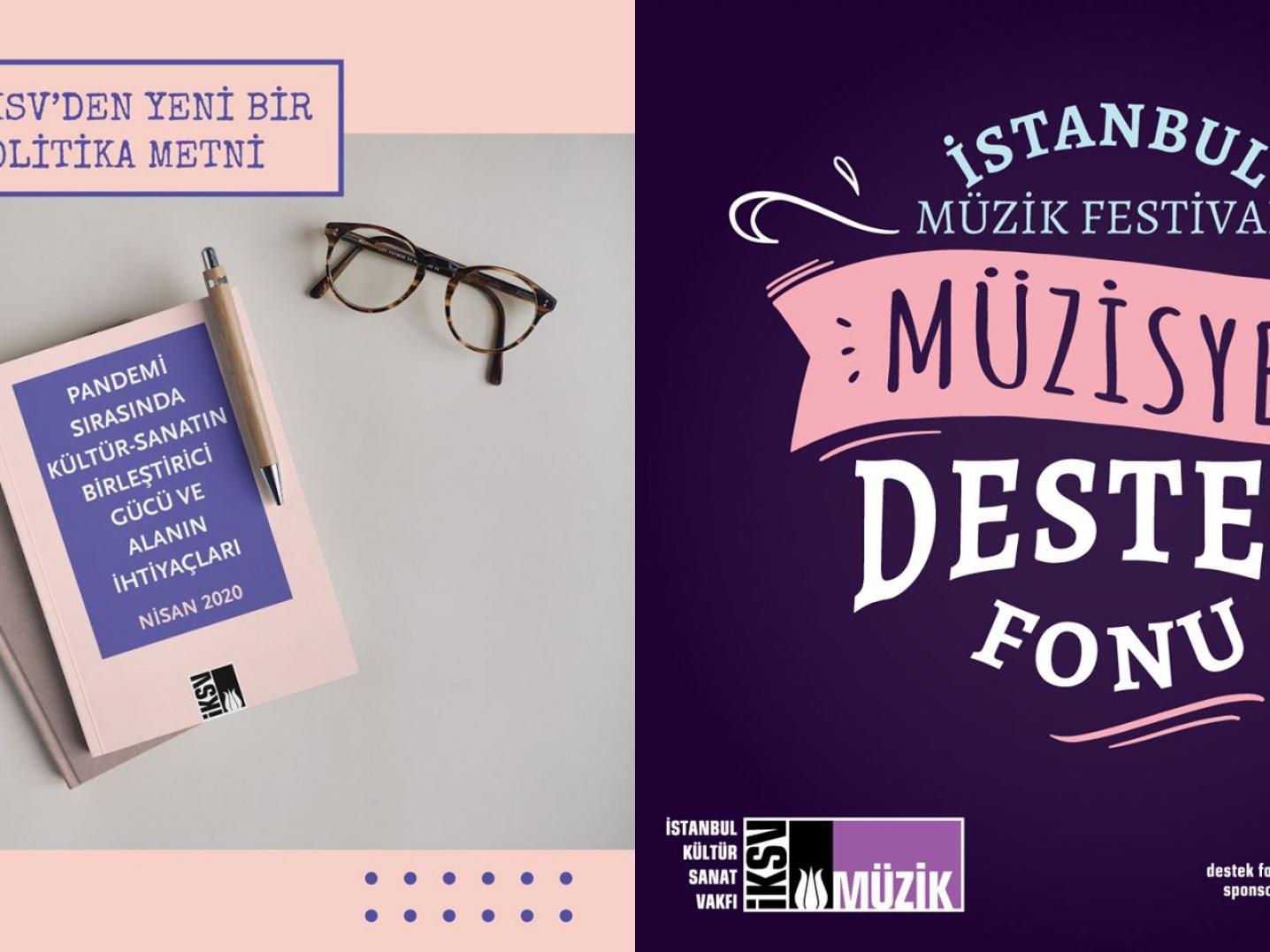
İKSV has been very quick to convert its range of activities into an online format. What are your thoughts on digital programming and digitisation in arts and culture?
“Most of us tried to fill the emptiness of shared physical togetherness through digital platforms and virtual connections. This was a time when people realised once again that culture and the arts are an essential part of their lives. As the Istanbul Foundation for Culture and Arts, we also felt that we needed to engage with our communities in digital spaces, as bringing people together seemed vital. It is important to think about the strengths of the online formats and how these can help to make art more democratic. At the same time we feel that digitisation of arts and culture can never take the place of a real experience of art and culture. Visiting an exhibition in a space where we really see the works of art and have a common space shared with other visitors will not lose its value even after the pandemic.”
What are your thoughts for the coming months? What are the lessons learned?
“I believe it is important to see the pandemic as a moment of potential change. It has made crystal clear what needs to change regarding our pre-COVID 19 society. We have been questioning why we do art, why we work in the art world, and why we need art, maybe even more during turbulent times. Once again we have experienced that art makes a real difference in how we live our lives. Art amplifies important voices and messages even more in times of social injustice and unrest. It helps us to understand the world around us and to imagine alternative forms of being. We have been witnessing an increased turn to the arts during the pandemic. Through art we are connected to a more universal human experience. Engaging with art becomes a source of resistance and strength. As the inequalities become more visible during the pandemic, art becomes a space to create stronger communities and to understand each other.”
What kind of transformation can we expect for the Istanbul Biennial next year?
“As the Istanbul Biennial is planned to take place next fall in 2021, we have been questioning how to respond to the suspension of life, how to reimagine our formats, how to listen carefully to what the planet and non-humans are trying to tell us, how to care more for each other, how to make systemic changes possible through art for a more equal, more sustainable, more united world. But also how to create a public debate involving intimate views from a political and philosophical perspective and how to create alternative forms of solidarity, both at an international and local level. We live in a state of permanent urgency and climate crisis which is connected to the pandemic. It seems indispensable to us to pause and asses the most basic issues and to rethink our role as people working in the arts field within this situation.”
Check out the complete overview of Dutch cultural activities in Turkey in our database. If you are a cultural professional wishing to go to Turkey, feel free to contact our Turkey advisor Yasemin Bagci. If you have questions about cultural cooperation with Turkey during corona, please visit our special information page.
